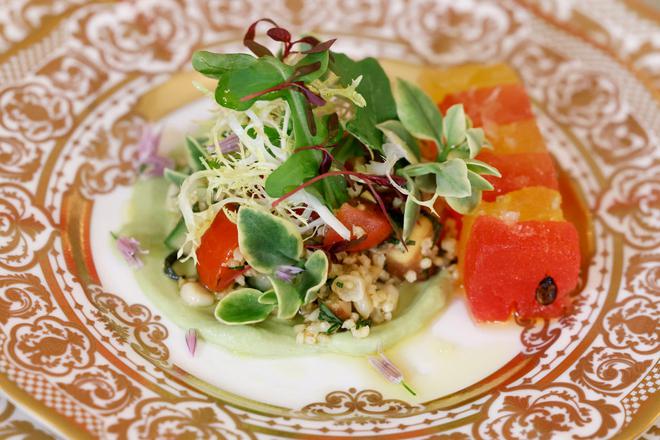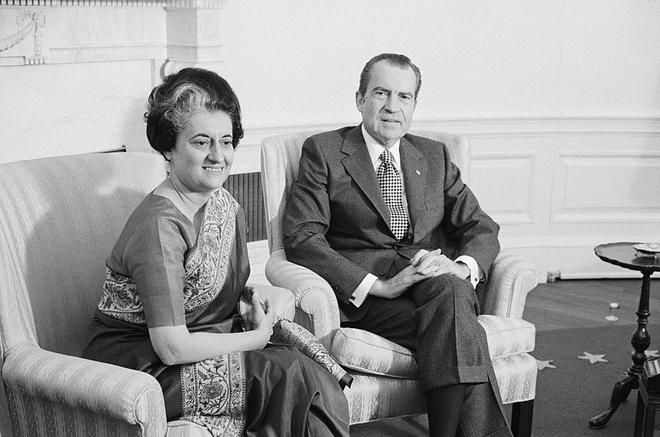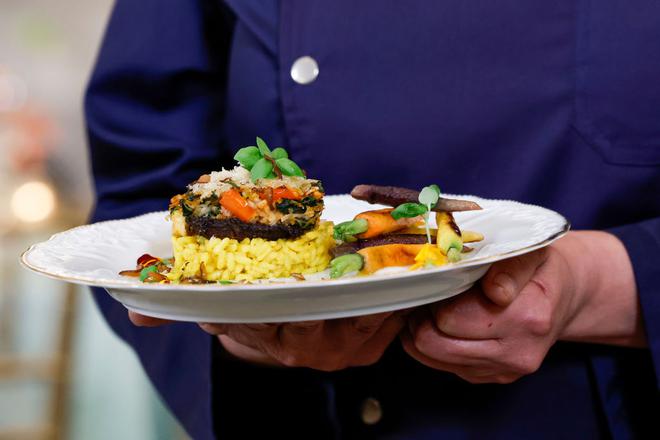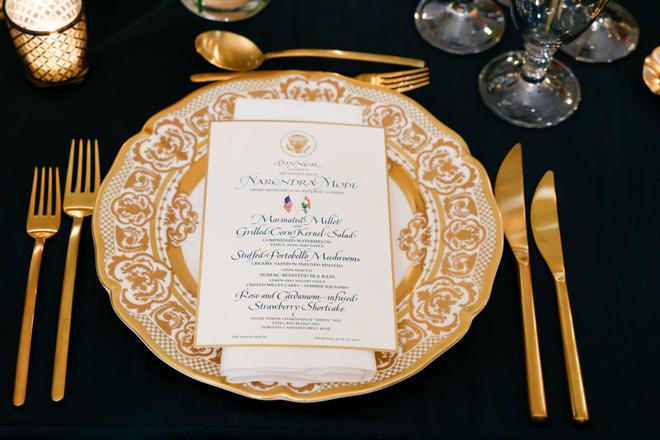‘Marinated millets and Patel red’. That sounds more like something an apoplectic Captain Haddock would splutter than a White House state dinner menu.
The menu for the U.S. President Joe Biden’s dinner to honour Indian Prime Minister Narendra Modi has turned into a social media roast. The marinated millets and Patel wine came in for the most censure. But they were also the biggest symbols of a changing world order. The millets (which made a double appearance on the menu) are a nod to India sponsoring the United Nations’ resolution to declare 2023 at the Year of the Millet, a hardy drylands crop, the so-called “poor man’s grain”.

The Patel wine is a way to toast the guests with some desi pride. Until now Patels were better known for their motels in the U.S., not their vineyards.
The whole menu designed by chef Nina Curtis has been described as “plant-based diplomacy” though it left many epicures green and queasy. Or perhaps this is just sour grapes from those who weren’t invited to try the Patel red. But something has undeniably shifted.
When Indira Gandhi was hosted by Richard Nixon at the White House in 1971, the menu included Quenelles de Brochet en Vol-en-Vent, Suprême of Pheasant Véronique with wild rice and Asparagus au Beurre, Bibb lettuce salad with Port de Salut cheese, Mousse Glacé au Praliné and petits fours. Mrs. Gandhi understood French so she presumably knew what she was eating. The wines were a 1969 Schloss Johannisberger, a 1967 Louis Martini Cabernet Sauvignon and a 1962 Louis Roederer Cristal.

Leaving aside the question about which dinner I would have rather attended, who would have thought a White House state dinner menu would ever include the line “Sea bass available on request”. The non-vegetarian item lurked on the fringes of the menu like a sheepish interloper, a red herring that might distract from the plant-based diplomacy at work.
Chef Curtis said the menu “showcases the best in American cuisine, also seasoned with Indian elements and flavours”. There’s nothing new about such experiments. Years ago Indian-American chef Laxmi Hiremath published a delicious Thanksgiving tandoori turkey recipe which was marinated in pomegranate juice. It was so good I tried to replicate it in India.
But the Indian elements in the state dinner menu, a bit of saffron here and some cardamom there, left many distinctly unimpressed despite the frisson of excitement promised by the “tangy avocado sauce”. A basic Gujarati thali at the White House would have sounded more exciting than compressed watermelon and summer squashes. Indian American writer Thrity Umrigar quipped on Facebook that they “didn’t even serve samosas as an appetiser” but added that at least no one referred to the stuffed mushroom and risotto as “curry”.

The all-vegetarian menu was clearly a way to curry favour with Prime Minister Modi but it feels almost un-American in a country where veggies once meant French fries. As a vegetarian on a student budget in California in the mid-90s, my friend Dhaval Shah found his options were severely limited when he ate out in his university town. “For months at a stretch, I used to eat a Carl’s Jr. burger with absolutely nothing in it — lettuce, tomato and onion between two buns.” Then he found he could get a meatless burrito at Taco Bell.
I remember another vegetarian friend who packed on the kilos in America because all he could eat at the local McDonald’s were milkshakes and French fries. Later he discovered to his shock that the secret to the world-famous fries’ taste was beef tallow.
Some of the disdain for the White House menu amongst the desis stems from the fact that while millions of Indians are vegetarian, fish and meat, especially those that come with frequent flier miles, think Norwegian salmon or New Zealand lamb, have become passports to gourmet aspiration in India. Eating out means eating meat in upwardly mobile India. That’s changing again because of younger chefs rediscovering local heritage and also because of sarkari diktats. But it still feels a bit unfashionable to hanker after greens in a country where meat is the new black.

Could the White House menu change that and give the humble millets a “foreign-returned” stamp? That’s doubtful but it does show the U.S. understands it must cater to its guests rather than expecting the world to eat whatever it puts out. It has read the writing on the wall. Or at least the menu.
Meanwhile, I have a packet of pearl millets I bought in a fit of wholesome nutritional piety that has been sitting unopened in my larder for months. Now thanks to the White House, I finally have a choice — marinated millets or crispy millet cakes. With some Sula red.
The writer is the author of ‘Don’t Let Him Know’, and likes to let everyone know about his opinions whether asked or not.







